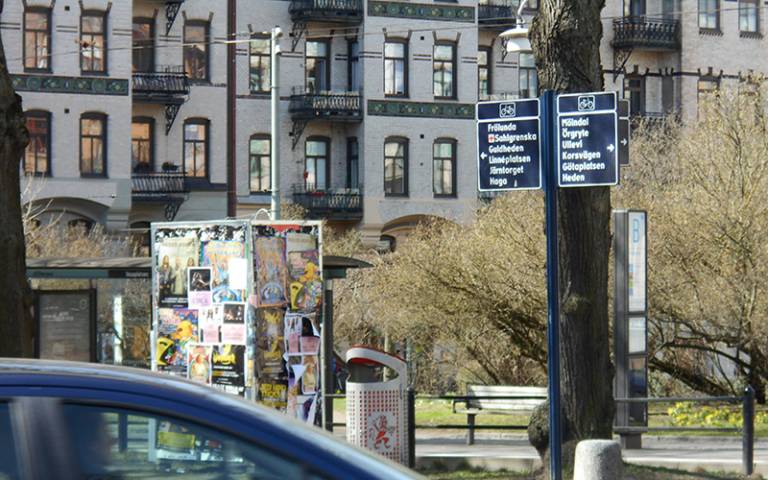We are partners on the Curating the City research cluster, as part of the Centre for Critical Heritage Studies, a joint initiative of UCL and the University of Gothenburg (UGOT)

The cluster focuses on urban heritage, exploring the dilemmas faced by academics and practitioners, specialists and laypeople, policy makers and citizens alike when it comes to negotiating the relationship between the urban past, present and future.
The curatorial approach is intended to frame a critique of the traditional role of the expert in identifying and defining heritage. It evokes a more distributed, diverse and democratic understanding of heritage practices, objects and conceptions which is developed in collaboration with different stakeholders, subject matters and audiences in the city, through creative and participatory processes. It also frames conservation and management of heritage as innovative rather than constraining practices, within the larger framework of global sustainability.
Issues and questions
We aim to develop joint research perspectives for our future cities that can help to disrupt regulated urban places into spaces of multiple co-existing initiatives, embracing both bottom-up informality and institutional formality, in order to create a temporally rich and heterogeneous fabric of urban life. We are interested in questioning the ways in which heritage can be used to generate particular, often exclusionary, narratives of urban identity, and to legitimise certain kinds of urban intervention, and our research activities aim to challenge established heritage practice to support the relevant and resilient development of historic cities in response to contemporary conditions.
The work of the cluster is transdisiplinary, across the overlapping fields of urban anthropology, archaeology, architecture and design, conservation, and cultural studies, and their associated methods.
Themes
We have identified five themes to explore through activities, research and publications produced by the cluster:
- Co-curating the city: universities and communities shaping postcolonial urban heritage narratives and lived experience for the future.
- The city as mnemonic device: forgetting and remembering through the city
- Topographies of knowledge production: intersectional and artistic perspectives on knowledge production in urban settings
- Sites of transition: migration and heritage: the heritage of migratory spatial practices within urban settings
- Non modern urban imaginaries: imaginaries of the city and its hinterlands - environmental, humanistic and artistic perspectives
Research timetable and engagement
During the first year of funding of the new centre we have been focusing on theme 1. This has involved organising two closed workshops in London (Nov 2016) and Gothenburg (April 2017), attended by a mix of academics, artists, curators and community stakeholders from UCL, University of Gothenburg, and other institutions, to discuss and critique university development initiatives within a framework of heritage discourse. Focusing in particular on the projects led by UCL (UCL East) and University of Gothenburg (Project Nackrosen), the workshops have been convened to examine how universities are re-evaluating their institutional identities and heritage in the context of place-based spatial development, and participating in a re-shaping of ideas, narratives, and lived experience of urban heritage for the future in collaboration with local communities in urban neighbourhoods. We look forward to developing outputs from these events over the next 9 months.
The next phase of workshop activities in 2018 will consider themes 2 and 3. This will examine the trans-temporal potential in the contemporary city to construct alternative futures. We will curate an examination of the prevailing traces of past urban inhabitants, to investigate how this informs projections of future cities. It will focus on site-specific events that will interweave the authorised heritage practices of site management with creative interventions that allow time travel between alternative cities of the past, present, and future.
We welcome involvement from other researchers who wish to engage in these themes. We encourage you to participate in our current workshop activities, and to propose your own projects to the UCL Centre for Critical Heritage Studies Small Grants Scheme.
Cluster leads
- Clare Melhuish (UCL Urban Laboratory)
- Dean Sully (UCL Institute of Archaeology)
- Henric Benesch (UGOT Academy of Design and Crafts)
- Ingrid Martins Holmberg (UGOT Department of Conservation)
Links
Image: Last Breath: (De-)constructing urban matter and memory, an installation by Thomas Dekeyser at Cities Methodologies 2014.
 Close
Close

